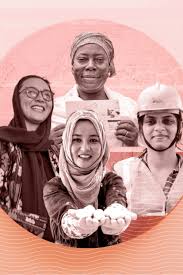Experts, advocates and media professionals recently gathered to discuss how to unlock women’s economic power in Nigeria. The conversation spotlighted an urgent need to recognise, value, and structure the care economy as a cornerstone for national productivity and women’s empowerment. ,
Opening the session, Adeola Alli, a multi-licensed pharmacist and founder of One Health, a digital pharmacy im- proving last-mile access to medicines across Nigeria and Africa, shed light on the economic and social realities of unstructured care work. She noted that about 70% of care work in Nigeria — including raising children, caring for the sick, and supporting the elderly — goes unpaid, with the majority done by women. According to her, this imbalance represents both a disservice to women and a missed opportunity for the national economy.
“The global care econ- omy could add 11 trillion dollars annually to the GDP if properly valued. Imagine what that could mean for Nigeria if we recognize caregiving as real work,” she said. Alli called for an economy “where care is capital and every act of healing be- comes a driver of wealth.” Building on this, Amara Agbim, the visionary founder of The Nanny Academy, emphasized the importance of professionalizing care work in Nigeria and improving the working conditions of care workers.
“Paid care work is essential but suffers from systemic undervaluation. Care workers today are often undocumented, underpaid, and subjected to excessive hours without contracts, social protection, or rest,” she said.Experts, advocates and media professionals recently gathered to discuss how to unlock women’s economic power in Nigeria.
The conversation spotlighted an urgent need to recognise, value, and structure the care economy as a cornerstone for national productivity and women’s empowerment. Opening the session, Adeola Alli, a multi-li- censed pharmacist and founder of One Health, a digital pharmacy im- proving last-mile access to medicines across Nigeria and Africa, shed light on the economic and social realities of unstructured care work. She noted that about 70% of care work in Nigeria — including rais- ing children, caring for the sick, and supporting the elderly — goes unpaid, with the majority done by women. According to her, this imbalance represents both a disservice to women and a missed opportunity for the national economy.
“The global care economy could add 11 trillion dollars annually to the GDP if properly valued. Imagine what that could mean for Nigeria if we recognize caregiving as real work,” she said. Alli called for an economy “where care is capital and every act of healing be- comes a driver of wealth.” Building on this, Amara Agbim, the visionary founder of The Nanny Academy, emphasized the importance of professionalizing care work in Nigeria and improving the working conditions of care workers. “Paid care work is essential but suffers from systemic undervaluation. Care workers today are often undocumented, underpaid, and subjected to excessive hours without contracts, social protection, or rest,” she said.















